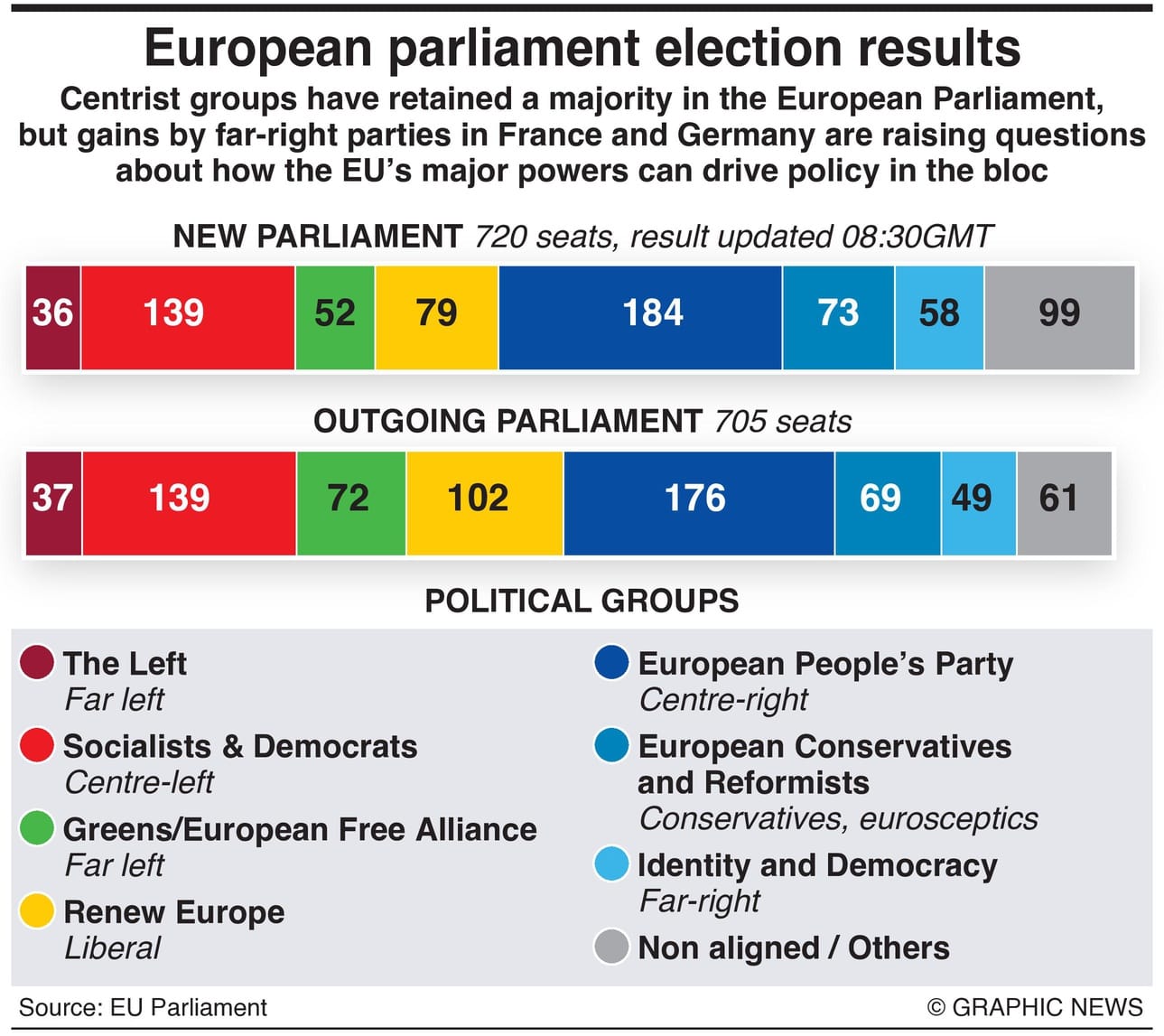Democratic elections are a process of sublime significance and consequence; it is the people's voice that the powers that be must heed.
The recently concluded European Union Parliament elections echoed the sentiments of the people from far and wide. Approximately 373 million voters from Finland to Cyprus voted over four days.
The results were largely expected—the far-right forces scored major gains. The Centre-right European People's Party increased its tally to 184 seats, securing a quarter of the 720 seats in the hemicycle. The extent of gains and losses sent tremors through countries like France, Germany, and Hungary. Europeans voted to support conservatives and ultranationalists, signaling their discontent with those in power.

But the picture is hardly black and white. The center-left group Socialists and Democrats (S&D) retained all their seats, keeping the tally at 139. The big losers were the liberal Renew Europe and the Greens party, who failed to recreate the success of the last election. However, with 99 seats claimed by the non-aligned/others, building consensus will continue to influence the parliament's direction.
The sentiment and mood across the continent are clear - there's little to cheer for. The Ukraine War has destroyed hard-won peace and tranquillity. Economic recession and persistent inflation have taken a financial toll on most. Rising food and energy prices have eaten into family budgets with no respite in sight. The inflow of immigrants and the shifting demographics have led to tensions in various countries. The rise of religious extremism and waning tolerance have manifested in hate crimes and vandalism.
Climate activism and environmental concerns have so far only added to citizens' woes. The election results have dampened the EU's efforts to become the world leader in tackling climate change. The trouncing of the Greens reflects the cost the renewable energy push has taken on Europeans.
The significant shift in the recent elections signals that the far right is no longer on the fringes of the political spectrum in Europe. However, what remains to be seen is whether the larger numbers will translate to actual power in the parliament. To become a force and steer policy, the center-right and far-right must unite—a task easier said than done—while also attaining the support of the non-aligned members.
The 27 member states of the European Union are diverse in myriad ways. They differ in political ideologies, ethnic backgrounds, cultural traditions, and economic strengths. The Members of the European Parliament (MEPs) have different agendas, often caught between national priorities and the EU's direction. The unified front belies their deeply entrenched differences.
The election of the next European Commission President is likely to indicate how the new parliament will group together. The rise of nationalist interests may, in turn, lead to less EU involvement. Dissenting voices against green-energy transition, liberal immigration, and the ongoing war could lead to policy changes. While no sudden changes are expected in the EU's support of Kyiv, it remains to be seen how those who oppose the Union's involvement will steer the course. President Zelensky must be aware that fatigue is setting in beyond Ukrainian borders with the "unconditional support" extended so far.
Despite the unprecedented results, the EU parliament remains largely centrist. Policy decisions and budget approvals will depend on consensus and extensive debates. The question is whether the centrist parties will opt to work with those across the aisle or, in a first, choose the ultraconservative.








